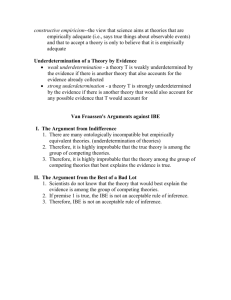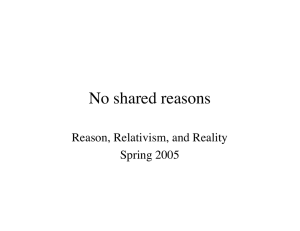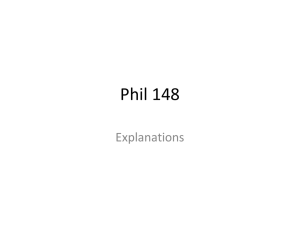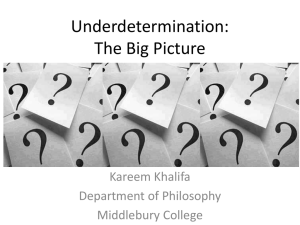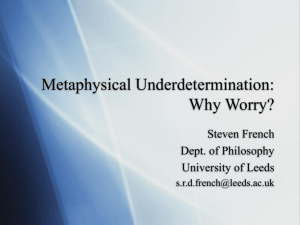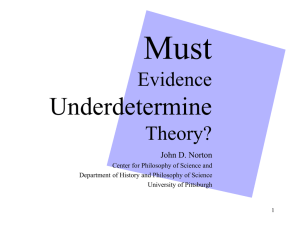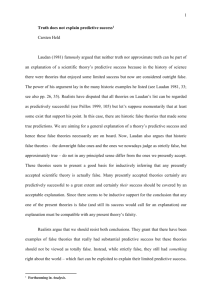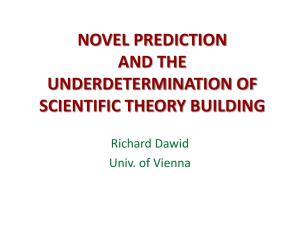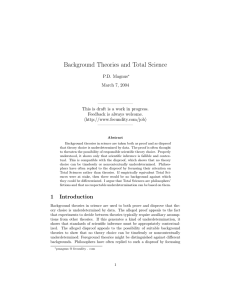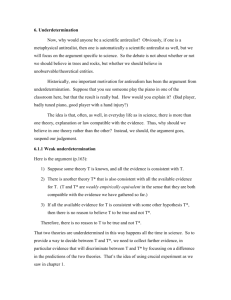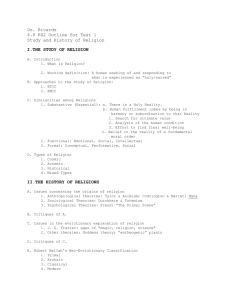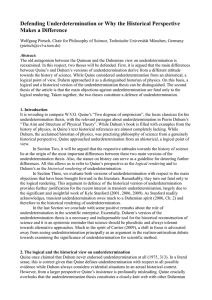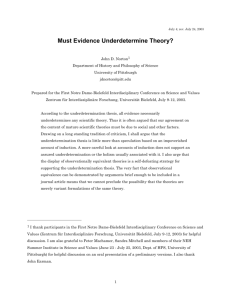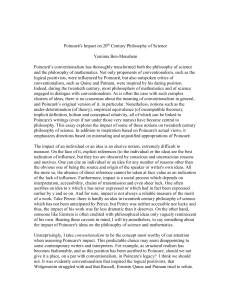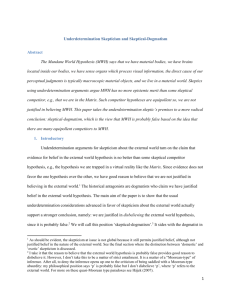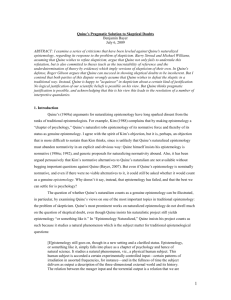Presenter Jannai Note Taker: Andrew Demystifying
advertisement
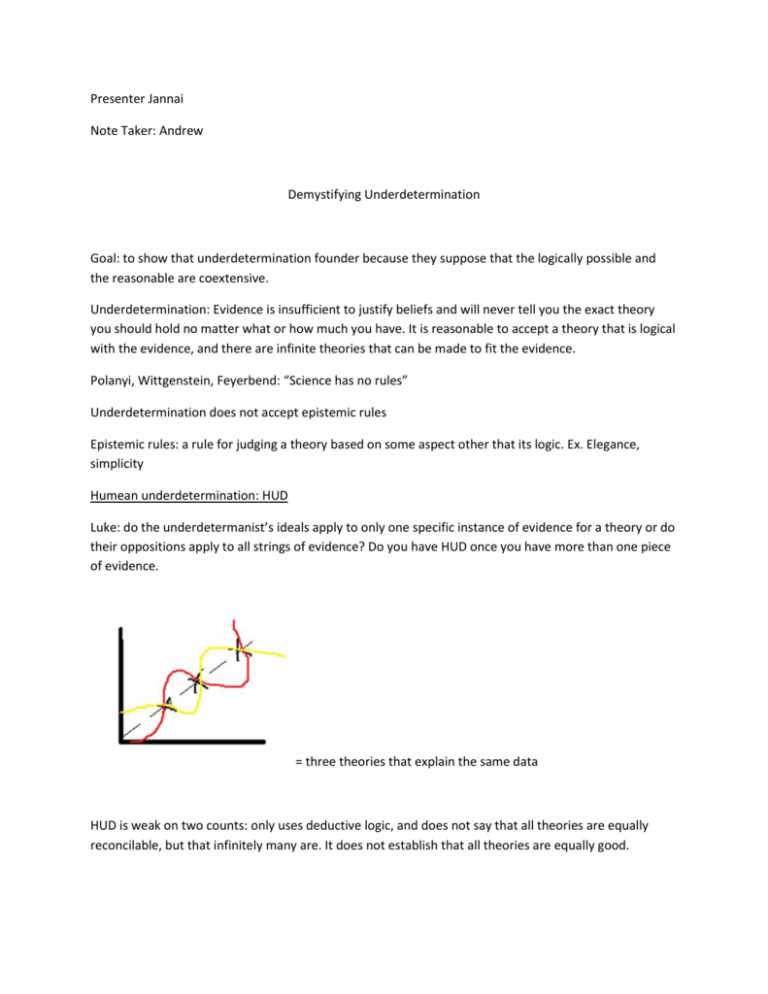
Presenter Jannai Note Taker: Andrew Demystifying Underdetermination Goal: to show that underdetermination founder because they suppose that the logically possible and the reasonable are coextensive. Underdetermination: Evidence is insufficient to justify beliefs and will never tell you the exact theory you should hold no matter what or how much you have. It is reasonable to accept a theory that is logical with the evidence, and there are infinite theories that can be made to fit the evidence. Polanyi, Wittgenstein, Feyerbend: “Science has no rules” Underdetermination does not accept epistemic rules Epistemic rules: a rule for judging a theory based on some aspect other that its logic. Ex. Elegance, simplicity Humean underdetermination: HUD Luke: do the underdetermanist’s ideals apply to only one specific instance of evidence for a theory or do their oppositions apply to all strings of evidence? Do you have HUD once you have more than one piece of evidence. = three theories that explain the same data HUD is weak on two counts: only uses deductive logic, and does not say that all theories are equally reconcilable, but that infinitely many are. It does not establish that all theories are equally good. Quinean Underdetermination: QUD Non uniqueness thesis Egalitarian thesis Ampliative inferences: anything that does beyond straight contradiction. Ex. choose the most elegant, inductive Quine fails in his argument: even if he could prove there are some ampliative rules that are no good, it would not prove that all are no good. Critiques of Popper: you don’t reject a theory by falsifying instances; only the “web of belief” is falsified. Nothing in the web can be isolated Luke: can you test an axillary hypothesis? Problem: you will always be making theoretical commitments and there are always a set of auxiliary hypothesis that can replace those that are held. Quine fails to prove these auxiliary hypotheses exist. Say you have “sixed” you web of belief after it has been proven incorrect. According to Quine, there is no reason to accept either and Lauden is asking what is his justification for such a claim. Lauden says just because it is possible does not mean it is reasonable. Luke: Why do we assume nature is simple and can be explained by simple theories? Is this a metaphysical assumption and is it reasonable? Simplicity is an ampliative inference/ metaphysical assumption. Anton: there may be different types of simplicity Ross: is simplicity a pragmatic argument? Jannai: is it more rational to accept a more elegant theory Sansom: do we naturally try to simplify things due to social, evolutionary, or some other type forces. Ampliative Underdetermination: Goodman: 1 rules of ampliative underdetermination has defect. It is inductive Grue: having a characteristic until a certain time where that characteristic changes. Green now until it is blue. Grue/ green are equally good theories. Kuhn: paradigm shifts are not always justified by the data/ experience. Paradigms are supported by their own standards and discredited by the standards of others. There are other factors that contribute to the acceptance of a theory. Kuhn does not give an argument that establishes the ambiguity of theory choice. Kuhn says that you always have got scientific reason to hold onto a theory and Lauden says tou can only feel that way if you are an egalitarian. KEY IDEA Pay attention to the details because it is within them that the argument is made. Underdeterminationists will justify a lesser underdeterminationism as justification for their own more extreme views. Lauden gives an\ example of an instance where a theory was rejected over another He has not discredited all underdetermination nor has he given a way to do about choosing.
